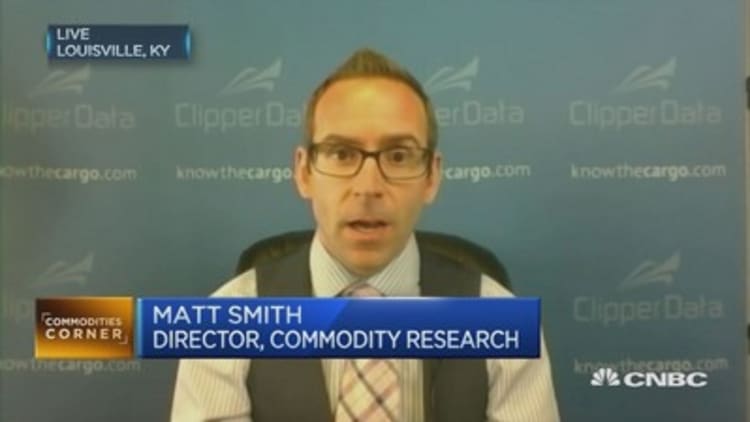
Oil prices fell nearly 2 percent on Wednesday on growing doubts OPEC will cut production, giving back the gains they clawed back after the U.S. government reported a surprise drawdown in crude inventories.
U.S. crude stockpiles fell 553,000 barrels last week, the U.S. Energy Information Administration (EIA) said, a result contrary to the 1.7 million-barrel build that analysts polled by Reuters had forecast.
Crude inventories in the world's largest oil producer have fallen unexpectedly in seven of the past eight weeks, bucking the trend usually seen during autumn when stockpiles rise as refineries go into maintenance. A preliminary report on Tuesday from the American Petroleum Institute, a trade group, had suggested a build of 4.8 million barrels for the Oct. 21 week.
Oil prices pared losses after the EIA data, with U.S. crude briefly trading in positive territory. But the rebound was limited by doubts about whether OPEC, which meets Nov. 30 in Vienna, will succeed in reducing a global crude glut.

Brent crude futures were down 91 cents, or 1.8 percent, at $49.88 a barrel by 2:35 p.m. ET (1835 GMT), near a session low of $49.65, the weakest price since Sept. 30.
U.S. crude futures settled down 78 cents, or 1.6 percent, to $49.18 a barrel, having fallen to $48.87, the lowest level since Oct. 4.
"The focus point from here remains on the OPEC meeting that comes a month from now, with Iran, Libya and Nigeria all looking unlikely to commit to output cuts," said Tariq Zahir, crude trader and fund manager at Tyche Capital Advisors in New York.
Oil prices were depressed by producers' verbal jockeying over planned output cuts by the Organization of the Petroleum Exporting Countries. Iraq does not want to join in with a proposed production cut that the group has said it will approve at a regular meeting in Vienna next month.
Traders and investors are growing less confident about OPEC's chances of securing an effective agreement to curb output as more members say they want to be excluded from the deal.
With Iran, Nigeria and Libya already expected to be excluded, along with potentially Venezuela and Indonesia, whose state oil producer said on Tuesday it was targeting a 42-percent increase in output next year, traders and investors are growing less confident in the chances for an effective deal.
"The market is definitely in need of some kind of soothing words once again, but it's a 'cry wolf' thing. The talking has to get louder and louder to attract any attention, because skepticism is on the rise and I think rightly so," Saxo Bank senior manager Ole Hansen said.
"No doubt, the difference now compared to earlier this year, back when the market was primarily reacting to verbal intervention, is now something has been promised and if that promise cannot be fulfilled or delivered, then we obviously have a problem," he said, adding that his near-term target for Brent was $49.40, followed by $48.40.

Iraq, the second-largest producer within OPEC, has argued it needs its oil revenues to fight Islamic State.
At the Algiers meeting, Iraq said OPEC had underestimated its output, which it pegged at 4.7 million bpd, compared with the group's assessment, based on secondary sources, of 4.2 million bpd.
"Iraq is aiming to expand its oil sector through smaller field developments to lower reliance on the major oil fields and their operators for growth," said energy consultancy BMI Research in a report on Wednesday.
"Proposals to negotiate contract terms will attract new companies and investment, though we expect bilateral negotiations to delay contract awards," the report said.
Unless top world producer Russia, which does not belong to OPEC, joins in, that leaves the onus of a potential cut with Arab producers in the Middle East such as Saudi Arabia, Kuwait and the United Arab Emirates.
"OPEC appears to be approaching the limits of its ability to jawbone oil higher without something concrete to put on the table," said Jeffrey Halley, senior market analyst at brokerage OANDA in Singapore.

